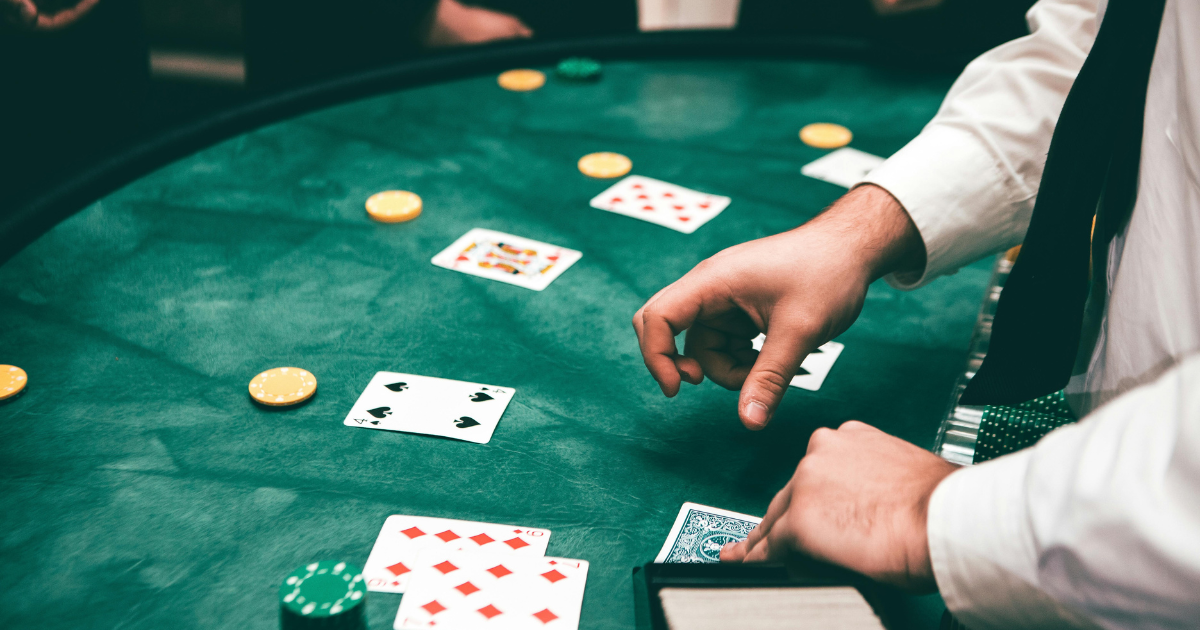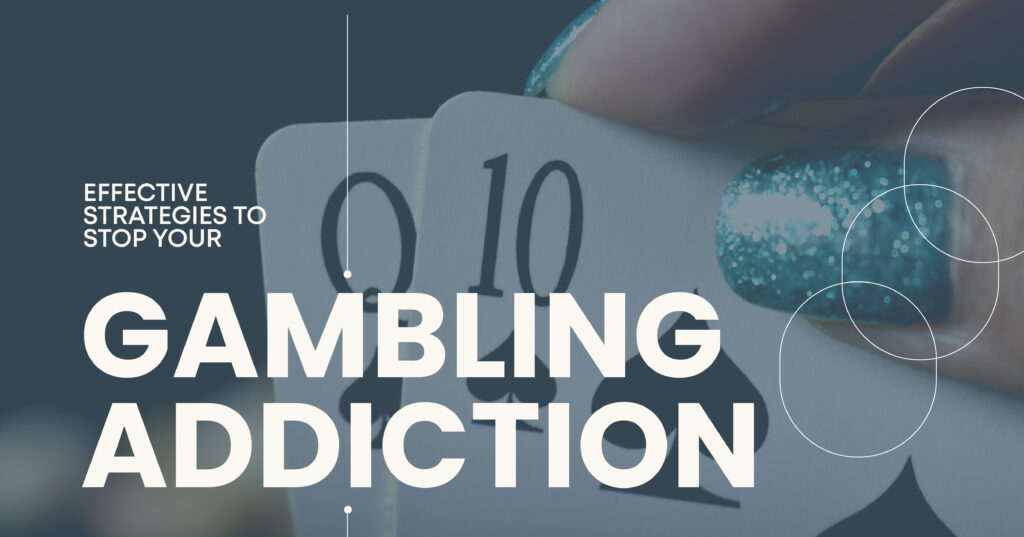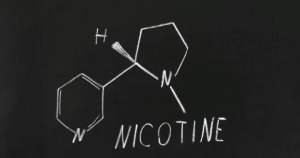For many, gambling begins as a form of entertainment—harmless, even exciting. But for others, it quickly spirals into something far more damaging: a compulsive behavior that impacts finances, relationships, and emotional well-being. If you’ve ever found yourself asking, “How do I stop my gambling addiction?”, know this: you’re not alone, and there is a way forward.
In this guide, we’ll explain how to recognize the signs, understand the impact of gambling on your health, take practical steps to regain control, and explore the professional gambling help available to you at the Mental Health Center of San Diego.
Recognizing the Signs of a Gambling Problem
Acknowledging a gambling problem is the first—and often the hardest—step. The compulsion to gamble can feel overwhelming, especially when it’s tied to stress, emotional pain, or the rush of chasing losses.
Here are common signs that gambling may have become a serious issue:
- You lie to loved ones about your gambling habits
- You gamble with money meant for bills, rent, or essentials
- You feel restless or irritable when not gambling
- You try to win back losses, only to fall deeper into debt
- You’ve tried to stop gambling, but can’t seem to follow through
- Your relationships or job are suffering because of gambling
Mental Health Center of San Diego
The Impact of Gambling on Mental and Physical Health
A gambling addiction doesn’t just affect your wallet—it affects your whole life. Physically, emotionally, and mentally, the toll can be severe.
Here’s how gambling can impact your overall health:
- Increased anxiety and depression, especially after losses
- Sleep disturbances due to stress and compulsive thoughts
- Irritability, mood swings, and emotional numbness
- Substance abuse, often used to cope with guilt or shame
- Social withdrawal from friends and family out of embarrassment
- High blood pressure, digestive issues, and chronic fatigue from prolonged stress
Practical Steps to Overcome Gambling Addiction
Getting out of the grip of gambling addiction is possible, but it takes clarity, structure, and support. If you’re asking, “How do I stop my gambling addiction?”, start by building awareness around your triggers and behaviors.
Here are practical steps you can take today:
- Self-ban from gambling platforms and casinos—many offer exclusion programs
- Delete gambling apps or betting websites from your devices
- Track your gambling urges in a journal to identify patterns
- Replace gambling with healthy alternatives like exercise, art, or volunteering
- Set financial boundaries, such as blocking credit cards or giving financial control to a trusted person
- Create a daily routine that limits boredom and isolation
- Celebrate small wins—each day without gambling is progress

Seeking Professional Gambling Support and Counseling
While self-help strategies are important, many individuals benefit most from professional gambling support. A licensed therapist or counselor can help you understand the root of your addiction, develop coping skills, and hold you accountable in a safe, non-judgmental environment.
Professional help may include:
- Individual therapy to explore emotional triggers and behavioral patterns
- Cognitive Behavioral Therapy (CBT) to reframe thought processes tied to gambling urges
- Group therapy to connect with others who understand your journey
- Financial counseling to repair and rebuild after debt
Mental Health Center of San Diego
Building a Strong Support System for Gambling Recovery
You don’t have to go through gambling recovery alone. Building a strong support system makes a massive difference in both your motivation and accountability.
Here are some ways to create that network:
- Tell trusted friends or family members about your struggle
- Join support groups such as Gamblers Anonymous
- Lean on mentors or recovery coaches who’ve been through it themselves
- Create boundaries with people who trigger gambling behavior
- Set up weekly check-ins with a therapist or counselor
Exploring Treatment Options for Gambling Addiction
No two recovery paths are the same, which is why the Mental Health Center of San Diego offers a range of addiction treatment options tailored to your needs.
Treatment options may include:
| Treatment Approach | What It Offers |
| Outpatient Therapy | Flexibility to attend therapy while continuing work or school |
| Intensive Outpatient Programs (IOP) | Structured therapy multiple times a week for deeper recovery support |
| Dual Diagnosis Treatment | For individuals with both gambling addiction and mental health conditions like anxiety or depression |
| Family Counseling | Helps rebuild relationships and trust with loved ones |
| Relapse Prevention Planning | Teaches coping skills and builds long-term strategies for sustained recovery |
Maintaining Long-Term Recovery from Gambling Addiction
Stopping is just the first step. Staying stopped—long-term gambling recovery—requires intentional habits, emotional resilience, and community.
Here’s how to maintain recovery for the long haul:
- Continue therapy, even after initial recovery milestones
- Rebuild your finances slowly, with small, achievable goals
- Stay active in recovery groups for ongoing support
- Avoid high-risk situations like casinos, sports betting environments, or late-night browsing
- Celebrate milestones, whether it’s 30 days, 6 months, or a full year without gambling
Break the Cycle—Find Real Support for Gambling Recovery at Mental Health Center of San Diego
You don’t have to battle gambling addiction in silence. At Mental Health Center of San Diego, we provide expert guidance, compassionate care, and a personalized plan to help you overcome gambling and reclaim your life.
Whether you’re taking your first step or returning after a relapse, we’re here to help you move forward with dignity, clarity, and confidence.
Contact Mental Health Center of San Diego today to begin your journey toward recovery and a healthier future.

Mental Health Center of San Diego
FAQs
- What are effective strategies to stop gambling and regain control over my life?
Strategies include setting clear boundaries, self-exclusion from gambling platforms, building healthier habits, and seeking professional help. Support groups and therapy also play a key role in long-term success.
- How can I recognize if I have a gambling problem that needs professional help?
If gambling is affecting your relationships, finances, work, or mental health—and you’ve tried to stop but can’t—you may need professional support. Frequent urges and secretive behavior are also red flags.
- What role does gambling therapy play in addiction treatment and recovery?
Gambling therapy helps individuals understand the emotional triggers behind their behavior and teaches coping skills to resist urges. It also provides accountability, structure, and support throughout the recovery process.
- How can family and friends provide gambling support during my recovery journey?
They can offer emotional support, help manage finances, set healthy boundaries, and encourage treatment. Being non-judgmental and staying involved makes a big difference.
- What are the benefits of seeking professional gambling help and counseling?
Professional counseling provides tools to stop gambling, rebuild self-worth, and repair relationships. It also offers tailored strategies and access to a recovery community that understands your journey.









